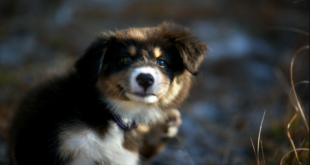Potty Training Older Dogs – It’s never too late to teach an old dog new tricks, and potty training is no exception. While many people believe that potty training is only for puppies, older dogs can also benefit from learning where and when to do their business. Whether you’ve recently adopted an adult dog or your faithful companion has developed an unfortunate habit of using your carpets as their personal restroom, potty training can be a positive and rewarding experience for both you and your furry friend. In this article, we’ll discuss some tips and tricks for potty training older dogs, so you can have a clean and happy home.
Table of Contents
1. “It’s Never Too Late: Potty Training for Older Dogs”
Potty training an older dog may seem daunting, but it’s never too late to teach your furry friend some new tricks. First and foremost, be patient and understanding with your pooch as they navigate this new territory. Remember, your pup has spent their entire life going potty whenever and wherever they feel like it. Breaking this habit will take time and consistent effort.
To get started, designate a specific spot in your yard for your dog to do their business. Try to consistently bring them to this location every time they need to go. Use a command such as “go potty” to help them associate this spot with going to the bathroom. Be sure to reward your dog with plenty of praise and a treat when they successfully go in the designated spot.
Another helpful tip is to establish a routine schedule for feeding and potty breaks. Dogs thrive on routine and consistency, so establish a routine that works for you and your pup. A consistent routine will help your dog anticipate when it’s time to go outside and reduce the likelihood of accidents inside the house.
Overall, remember that potty training an older dog takes time and continuous effort. Stay positive, patient, and consistent and eventually, your furry friend will catch on.
2. “Strategies for Successfully Potty Training your Senior Pooch”
Potty training a senior dog may seem like a challenging task, but with the following strategies, it can be accomplished.
Consistency is key
- Take your dog outside frequently to eliminate.
- Designate a specific spot for your dog’s potty breaks and always take them there.
- Use the same command every time to indicate that it’s time to go potty, such as “go potty” or “do your business.”
Reward good behavior
Positive reinforcement can go a long way in potty training your senior dog.
- Praise your dog when they successfully eliminate outside.
- Offer a small treat immediately after your dog finishes going potty.
- Use verbal cues to reinforce good behavior, such as “good boy” or “good girl.”
Remember to be patient with your senior pooch. Potty training may take longer than expected and accidents will happen. With consistency and positive reinforcement, your senior dog will eventually understand where it’s appropriate to eliminate.
3. “Say Goodbye to Accidents: The Keys to Training an Older Dog”
Training an older dog may seem like a daunting task, but with patience and consistency, it is possible to say goodbye to accidents once and for all. Here are some keys to successful dog training:
– Establish a routine: Dogs thrive on routine and consistency. Set a regular feeding and bathroom schedule, and stick to it. This will help your dog know when it’s time to go outside and reduce the likelihood of accidents in the house.
– Use positive reinforcement: Punishing your dog for accidents will only make them anxious and fearful. Instead, reward them for good behavior with treats, praise, and affection. This will encourage them to repeat positive behaviors and make training more enjoyable for both of you.
– Be patient: Older dogs may take longer to learn new habits, but with patience and perseverance, they can still make progress. Don’t get discouraged by setbacks or accidents. Remember that every dog is different and learn at their own pace.
By following these simple keys to training an older dog, you can create a happy, healthy, and accident-free environment for yourself and your furry friend. With a little time and effort, you’ll be able to say goodbye to accidents for good.
4. “A Comprehensive Guide to Potty Training Dogs of Any Age”
One important thing to keep in mind when potty training dogs of any age is consistency. Establishing a routine for your dog’s bathroom breaks can help ensure success. This routine should include taking your dog out at the same times every day, such as first thing in the morning, after meals, and before bedtime.
Additionally, it’s important to praise and reward your dog for successful potty breaks. This positive reinforcement can help motivate them to continue their good habits. Consider offering treats or verbal praise whenever your dog goes potty in the appropriate location.
You may also want to consider using a crate or designated potty area to help your dog stay on track. This can help prevent accidents inside the house and encourage them to hold it until you take them to their designated spot. With patience and consistency, potty training a dog of any age can be a successful process.
5. “Mastering the Art of Potty Training Older Dogs: Tips and Techniques for Success
Older dogs can be potty trained successfully, but it requires patience and perseverance. Here are some tips and techniques to help you master the art of potty training your adult dog.
– Set a Schedule: Dogs thrive on routine, so set up a consistent schedule for feeding, potty breaks, and exercise. This helps your dog understand when it’s time to go outside and do their business.
– Choose a Spot: Pick a designated spot in your yard where your dog can go potty. Take them to this spot every time they need to go, and use a command like “go potty” to reinforce the behavior.
– Reward Good Behavior: Positive reinforcement is key to successful potty training. Whenever your dog goes potty outside, praise them and give them a treat. This helps them understand that going potty in the designated spot is a good thing.
– Watch for Signs: Watch your dog closely for signs that they need to go potty, such as sniffing or circling. When you see these behaviors, take them outside immediately.
– Be Patient: It may take several months for your older dog to be fully potty trained, so be patient and persistent. Consistency is key to success!
With these tips and techniques, you can successfully potty train your older dog. Remember to be patient, consistent, and always reward good behavior.
Potty Training Older Dogs doesn’t have to be a daunting task. With the right direction, patience, and positive reinforcement, your loyal pup can be potty trained in no time! So don’t worry – get piddle-prepping and watch your pooch become a whiz at housebreaking in no time.
 Treat For Dog – Brain Training for Dogs, Dog Training & Obedience Discover Treat For Dog and get your pup on the path to smarter, happier, and healthier living with brain training for dogs.
Treat For Dog – Brain Training for Dogs, Dog Training & Obedience Discover Treat For Dog and get your pup on the path to smarter, happier, and healthier living with brain training for dogs.




